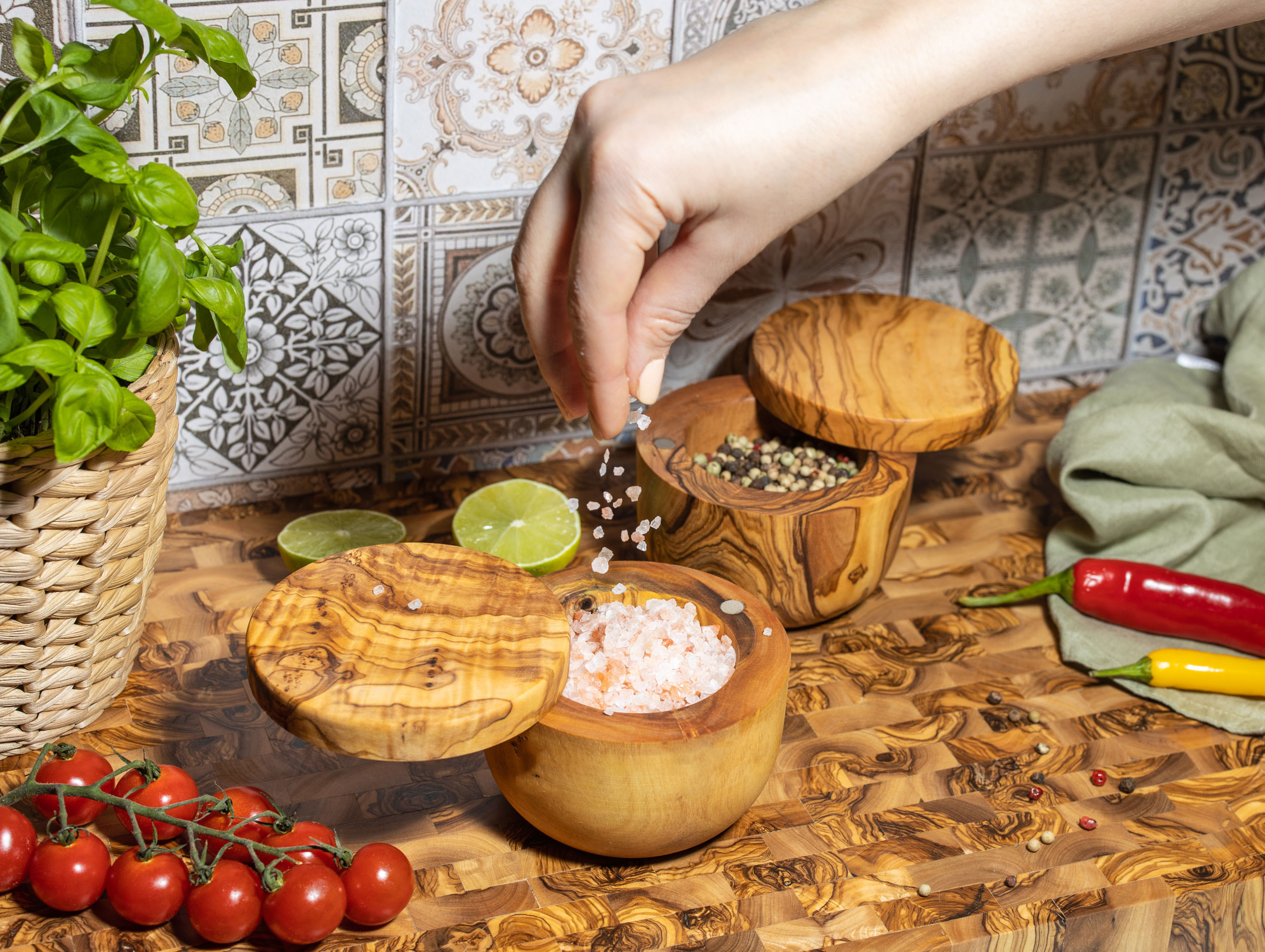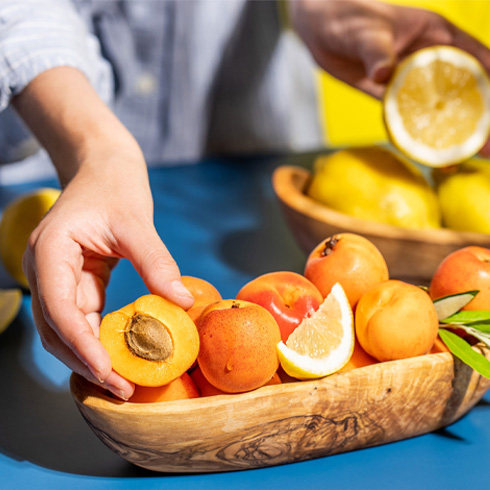Address
Sakiet Ezzit 3021, Sfax, Tunisia
Work Hours
Monday to Friday: 8AM -5PM
Address
Sakiet Ezzit 3021, Sfax, Tunisia
Work Hours
Monday to Friday: 8AM -5PM

Recently, we have heard a lot of concerns and opinions questioning the hygiene of wooden utensils. It’s time to clear up some misconceptions and shed some light on the benefits of wood in the kitchen.
In this article, we take a look at hygiene in the kitchen and the use of wooden utensils. Despite recent concerns, wood has a long tradition in the kitchen. We want to highlight the benefits of wood because it definitely has its place in the kitchen.

In the past, wood has often been given a bad reputation in terms of hygiene. The misconception that wood is an ideal home for bacteria and germs due to its porous surface persists. However, recent scientific findings have clearly refuted this preconception.
The key to the hygienic properties of wood lies in its unique cellular structure. This structure provides an enormous inner surface area that can absorb water extremely efficiently.
This so-called hygroscopic effect is present in all types of wood and ensures that bacteria find poorer living conditions due to moisture deprivation, which ultimately leads to their demise.
In addition, recent studies show that wood contains natural antibacterial agents, depending on the type of wood. Walnut and oak wood, for example, contain a high proportion of tannins and polyphenols, which have antibacterial properties.
Olive wood contains oleuropein, a natural antibacterial substance that ensures hygienic surfaces. Interestingly, olive oil also contains oleuropein, among other health-promoting properties, and therefore has positive antibacterial characteristics.



It may come as a surprise, but bacteria can survive longer on plastic surfaces, especially polyethylene, than on wood. On plastic, a significant reduction in the bacterial count only occurs after twelve to 24 hours.
If germs are repeatedly introduced, this can even lead to an accumulation of viable bacteria. Even thorough cleaning and disinfection measures only provide temporary relief.
A study by the German Institute of Food Technologies compared the bacterial load on standard wooden pallets with plastic pallets.
The result was surprising: the average germ load on wooden pallets was around 15% lower than on plastic pallets.
An even greater reduction in the microbial load was observed on specially treated wooden hygiene pallets made of pine heartwood.
ROBUST AND DURABLE
Olive wood kitchen utensils are known for their robustness. They can withstand knocks and bumps without breaking or splintering. This makes them reliable tools that can last for years. Unlike plastic, which can scratch and wear over time, olive wood develops an attractive patina over time.
EASY TO CLEAN
Another advantage of olive wood is that it is easy to clean. Unlike many plastic surfaces, which can easily become discolored or stained, olive wood is relatively uncomplicated to keep clean. A quick wipe with warm water and mild washing-up liquid is often enough. Olive wood also absorbs odors less than plastic, which helps to keep the kitchen fresher.
SUSTAINABILITY
Olive wood is a renewable raw material that can be obtained in an environmentally friendly way if grown and harvested properly. In contrast, the production of plastics generates significant amounts of greenhouse gases and leaves a considerable ecological legacy. So when you choose olive wood kitchen utensils, you are supporting sustainable and environmentally conscious kitchen practices.
Prejudices against wood in the kitchen have proven to be unfounded. On the contrary, wood offers natural antibacterial properties and is environmentally friendly, robust and durable. It’s time to appreciate olive wood in the kitchen again and consider it a hygienic and sustainable option. Welcome to a new era of cooking!